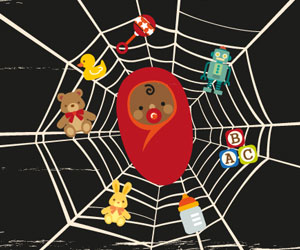Teboho Monyamane and Sarah Rice chat about finding Peter Parker… When Spiderman isn’t all there is…
Finding Peter Parker… When Spiderman isn’t all there is.
![]()
Teboho: At different stages of our lifelong development, we experience change moments that both inform and challenge our sense of personal identity. During infancy and early childhood, our world and our understanding of the world and ourselves revolves around our primary caregivers. Later in childhood and adolescence, it becomes linked to siblings and peers. In late adolescence and young adulthood, as we become more independent, our individual, personal identity becomes more important. Romantic relationships, studies, and career choices soon become part of our identity, perhaps followed by marriage and (or) starting a family – forcing us to again re-evaluate our sense of identity.
Sarah: So basically we go from 1. Thinking our parents know everything, to 2. Realising they know nothing but thank goodness our friends know how to find their way around the internet, to 3. Hmmmm… friends don’t seem to bright either…(see Google #NekNomination for more proof) But thank goodness I have found this one, perfect, gorgeous human who understands me and I love more than life itself, to 4. Let’s make this partnership permanent and have a baby to 5. #OMG… is that my mother/father in the mirror?
Becoming a parent involves not only practical adjustments and changes. It also involves making great psychological adjustments. As people frequently say, it is an experience you just can’t fully comprehend until you’ve experienced it.
The birth of a child transforms a person or a couple into a family.
By ‘transforms into a family’ I am assuming you mean from order to chaos? That’s what you mean, right?
Suddenly, you are a parent, with someone completely dependent on you. With every major decision you make now, you have to consider not only yourself or your partner but your child.
With great power comes great responsibility – Spiderman™
When you become a parent, you are no longer just someone else’s child, sibling, or partner, you’re the entire world to a tiny (so tiny!) human being who is completely dependent on you whether you are energetic, tired, happy or sad. You want to be a good parent.
Some unexpected experiences (hmmm… Euphemism for “the stuff people warned me about but that I assumed would never happen to me”!) may include prolonged baby blues, feeling overwhelmed, feeling frustrated and thinking you’re not doing things right – no matter how much you try – and feeling beyond exhausted. (Yes! and as this tends to be experienced at least once by every parent – father or mother – it’s not as much ‘unexpected’ as it is ‘unwelcome’.)
Becoming a parent is also potentially challenging (potentially? No… It’s definitely challenging!) for one’s sense of identity. Through the experience of becoming a parent, one often has to make a number of practical and psychological changes, which lead to a renegotiation and shift in identity. (The net result is that sometimes I sound just like my mother.)
New parents sometimes feel fearful of losing their personal identity or missing out on experiences they used to enjoy before becoming a parent. These fears are a normal part of any major life change and adjustment. And they’re often compounded by expectations, perceived or real, internal or external, of what it means to be a parent and what one essentially has to give up to be a “good” parent. (Oy! Too much pressure! I want to be a good enough parent! The idea of being a ‘good parent’ is like trying to be a saint – sets us all up for failure and disappointment. It’s an impossible goal – my aim is to be good enough.)
As most parents will say, becoming a parent is a tremendously fulfilling experience, (#TrueStory) which they would not change for anything, (nope. Not for anything) but it is not always an easy transition (nothing worthwhile ever is…)
For me, parenting was not a loss of identity – pieces of me did not get broken off and left behind on the journey – it was that I grew new pieces. I am still all the person I was when I fell pregnant at 28, but that 28-year-old is not all of who I am now – and this is a Good Thing 🙂

Leave a Reply